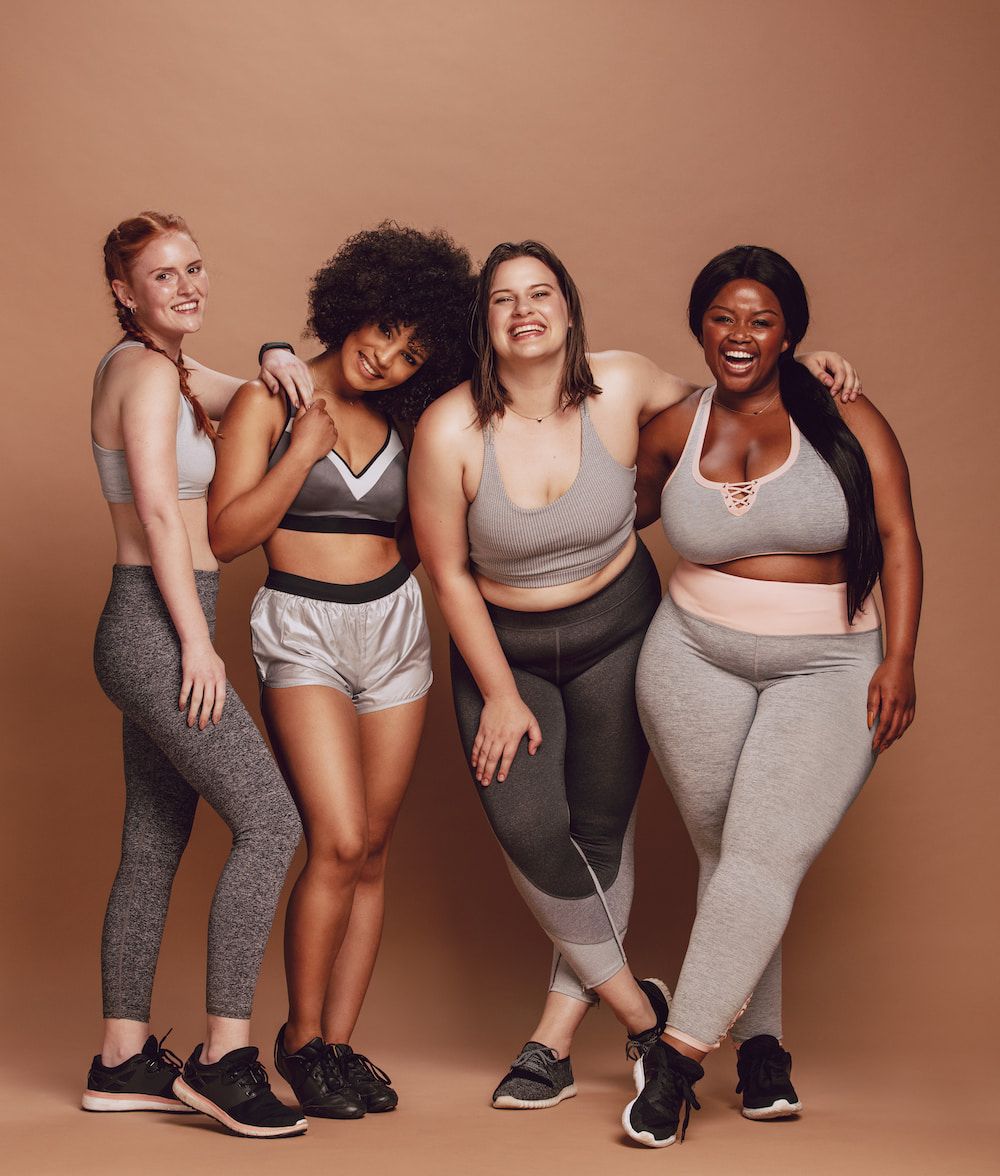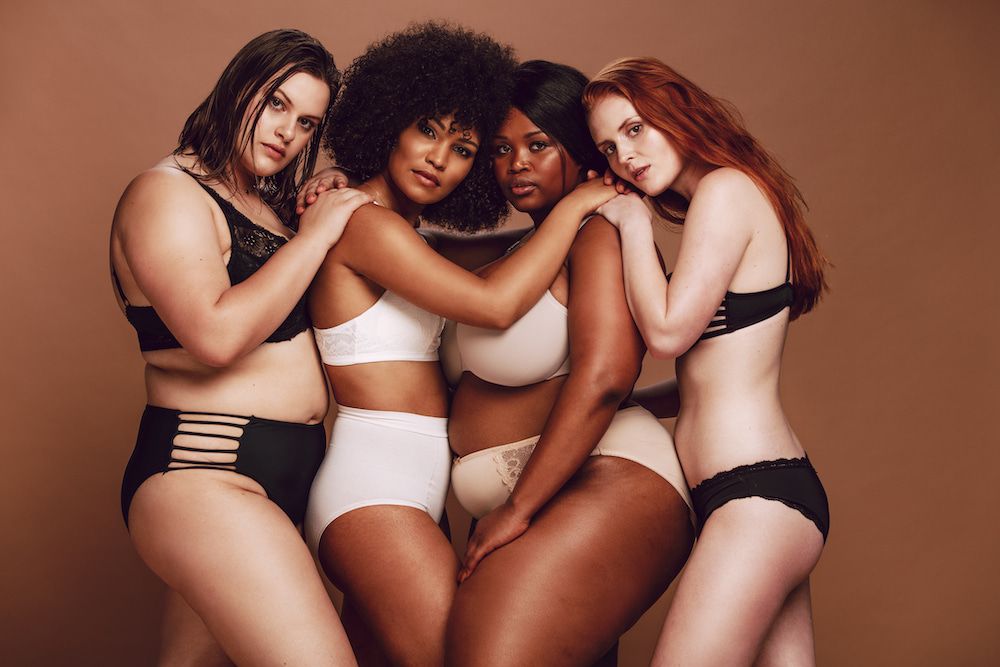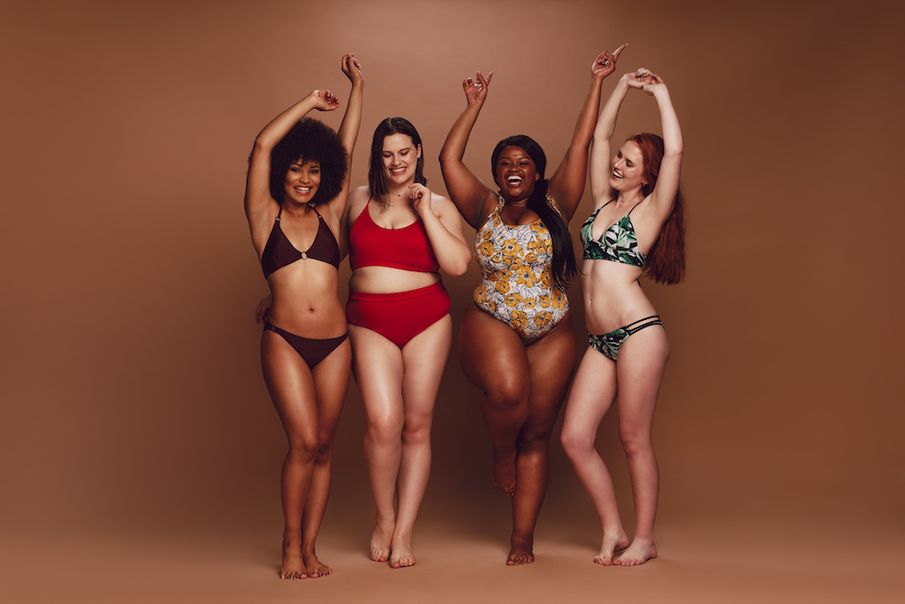As the summer hits its stride, it’s near impossible to avoid all the attention-grabbing headlines about the latest fad diet, ‘bikini body workout’, or obesity epidemics, designed to make us feel guilty at mealtimes. But diet culture doesn’t need to make its claim on you! Here, we put the BS on blast
Diet culture is like that song by The Police: every breath you take, every move you make, it’s watching you. And judging you.
All the messages that are ingrained in us by society, that health, beauty, happiness, and success have an aesthetic, and a very particular aesthetic at that, are encompassed by diet culture. If you don’t fit this image, then you’re wrong and need to change. Diet culture conveniently sells us all the tools we allegedly need to mould ourselves to the ideal image, and when they don’t work, it shames us for not trying hard enough.
These messages have incredible power over us, and seep into the way we think and talk about ourselves, our family, our friends, and strangers.
Diet culture is built on lies. Health doesn’t have one look, beauty is multi-faceted, success comes in many forms, and happiness doesn’t often come from being constantly told you’re not good enough.
Here are just some of the diet culture headlines I’ve spotted in recent years, that I wish people would stop using:
“This food is toxic! Avoid it at all costs!”

The toxicity narrative can come in a number of forms. With sugar in particular, we’re told that it’s toxic and addictive, and that’s why we’re all fat: we can’t stop eating it. This is absolute nonsense. Firstly, weight isn’t a behaviour, and we should stop acting like it’s something we have complete control over. Secondly, using fear tactics to scare people out of eating certain foods is unhelpful. It’s a very effective short-term motivator, but it also often leads to bingeing behaviours, secret eating, guilt, and is not conducive to good mental health. Using weight gain as a fear tactic implies that all weight gain is bad (it’s not), and shows just how much value society places on a thin body.
Much of the ‘toxicity’ narrative very much feeds in to the ‘thin bodies are good bodies’, ‘fat bodies are bad bodies’ narrative, as we take on the concept of ‘you are what you eat’. If you eat ‘toxic’ foods (sugar, processed food, chemicals, gluten, whatever is negatively trending) then this must manifest in the body in the form of weight gain, because toxic foods make toxic bodies. It’s an incredibly harmful narrative that attaches moral value to food, which is then transferred to our bodies. All bodies are good bodies.
“Having fat mannequins is ‘promoting obesity’”
Or subsitute this for any body positivity narrative. Humans come in a variety of shapes and sizes, and this should absolutely be reflected in the images we see around us. The very people who are so outraged at the fat Nike mannequin tend to be the same people who make fun of fat folks in the gym. So you want fat people to get smaller and engage in health behaviours, but you also don’t want them to go to the gym? These people don’t actually care about fat people’s health; they simply want fat people to cease to exist, because they don’t find fatness aesthetically pleasing. We should absolutely be encouraging anyone who wants and is able to move their body in ways they enjoy, and that includes giving everyone access to comfortable and practical workout clothes that fit.
“This food melts fat fast!”
Instead of encouraging rapid weight loss, let’s focus on self-acceptance
Any kind of ‘fat-burning’ foods, or foods that ‘melt the pounds away’, don’t exist. There is no such thing as ‘fat-burning’ foods, and there is no magical food that will lead to instant weight loss. Food doesn’t work like that. The language of ‘melting’ fat is incredibly strange, and implies that the fat stores inside our body function the same way as a slab of butter: work it and warm it up, and it converts from a solid to liquid state, which then… leaves your body? As sweat? No. Instead of encouraging rapid weight loss, let’s instead focus on health-promoting behaviours and self-acceptance.
“This is the first generation that won’t live longer than their parents”
This statement has spread like wildfire through the media and social media. I can see why; it’s a great soundbite. But it’s also totally wrong. When you trace it back to its origin (which is not easy as one article seems to get it from another article, which copied it from another article…) it wasn’t a finding in a scientific, peer-reviewed paper. It was from an opinion piece. This statement, which is shared as fact, is simply one person’s opinion. They didn’t even back it up with any evidence. This statement is simply untrue, and the average life expectancy is still going up as medical diagnoses happen earlier, treatments get better, and communicable diseases are hugely reduced. Who knows, we might even bring it up to 100 years old one day.
“We have an epidemic of fatness!”
Using the word ‘epidemic’ for a non-contagious phenomenon is misleading. It creates panic and implies that you can ‘catch’ fatness from someone. Actually, we have research suggesting that fat folks tend to eat less around thin folks, usually due to concerns about being judged if they eat more than the thin person. Fat people already face so much hate and discrimination, and implying that you shouldn’t have fat friends in case you become fat too, is cruel. All humans need social interaction to thrive, not just the thin ones.

Diet culture is insidious, yes, but that doesn’t mean we’re paralysed by it. Having an understanding of these societal structures allows us to be more compassionate to ourselves and to others. We know from research that shaming others, or ourselves, into losing weight doesn’t work. If we can learn and practise self-acceptance, we are actually far more likely to treat our bodies well, and see them as wonderful machines that deserve to be taken care of. In the end, I’m willing to bet you know your body better than any headline or Instagram ad ever could. Trust that. And if that feels too hard right now, reach out for help, because I promise, you deserve it.
Pixie’s top five health claims to avoid:
1. Anything that suggests there is one way of eating for everybody. It does not exist.
2. Claims that food is toxic. It’s not, as it wouldn’t be edible otherwise. Also, any chemist will tell you that the dose makes the poison. In other words, anything is toxic in the right quantity, even water.
3. ‘Guilt-free’ food. All food is guilt-free. You need to eat to survive, just like you need to drink water, breathe, and go to the toilet. None of those should involve guilt.
All bodies are good bodies
4. Anything that mentions the word ‘detoxing’. The more someone uses that term to talk about food, the less likely they are to actually know anything about human physiology and biochemistry. Lucky for you, I have a biochemistry degree, and I can happily say that you have a liver and kidneys that work 24/7. No one food can replace that.
5. ‘This food cures this disease!’ Food is not medicine. Food does not cure disease. A healthy, balanced diet is important for health, yes, but there is no such thing as a specific food that can cure a certain disease. (If you’re being really pedantic, you could say that removing a food that you’re allergic to is a ‘cure’, but I don’t think that’s quite the same thing!)
Pixie's books ‘The Wellness Rebel’ and ‘Become a Diet Rebel and Make Friends with Food’ are available now.
Follow Pixie on Instagram and Twitter @pixienutrition


Comments